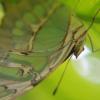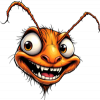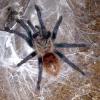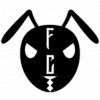So, I remembered that mrmacophyl from the The Ant Farm and Myrmecology Forum (who I've only just figured out is this forum's own gcsnelling) was working on a revision of New World Dorylinae, the subfamily of true army ants.
I posed him the following request:
In one of the other forums, there is a bit of a debate going on as to whether it is acceptable or sustainable for hobbyists to collect colonies of army ants. Seeing as how they are uncommon, how new colonies are seldom produced, and how they are generally very difficult to care for (as many of ours are specialist predators of other ants), I argue that hobbyists definitely should not collect colonies of these ants as pets. Others suggest that so long as a given species is not officially threatened or endangered, that collection would be inconsequential. I was hoping you would be willing to briefly summarize your thoughts on this, seeing as how you've devoted professional attention to these ants.
And he responded:
"(It is) Definitely not a good idea to collect colony queens of these ants. Unlike many other genera, Neivamyrmex and other army ant genera do not have nuptial flights as such. Instead males fly and hope to locate an appropriate colony with receptive virgin queens. Queens apparently are not produced every year and in very limited numbers. Considering the 100% death rate of collected material, collecting colony queens of a species whether officially endangered or threatened or what ever is not at all a sustainable practice and should not be done for anything other than valid scientific purposes."
This, and the poorly-understood nature of unabundant doryline colonies, indicates that it is definitely not appropriate for hobbyists (especially in North America) to keep army ants. I urge our hobbyists to appreciate and learn from Dorylinae but not in any way which could potentially threaten them. Furthermore, the vanity associated with keeping ants of this kind is wholly inappropriate. Remember that we are part of a growing community, and that we must be conscientious of our methodologies to work towards an ecologically sound future for the hobby.
I believe this is G. C. Snelling's paper for the New World revision: http://antbase.org/a...21290/21290.pdf
Here's a recent paper I found about Dorylinae, a generic revision: http://zookeys.penso...les.php?id=9427
Edited by Batspiderfish, April 29 2017 - 9:41 AM.

























